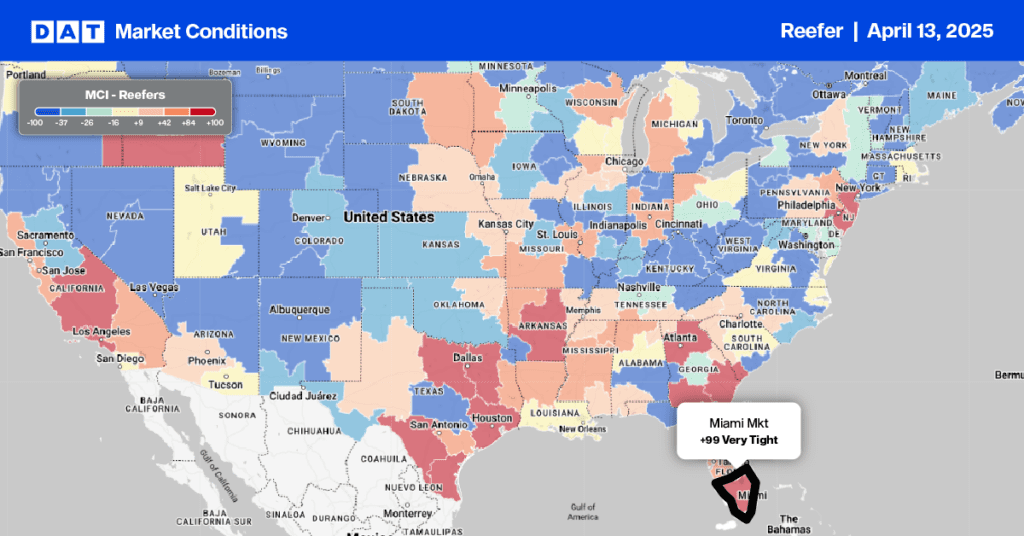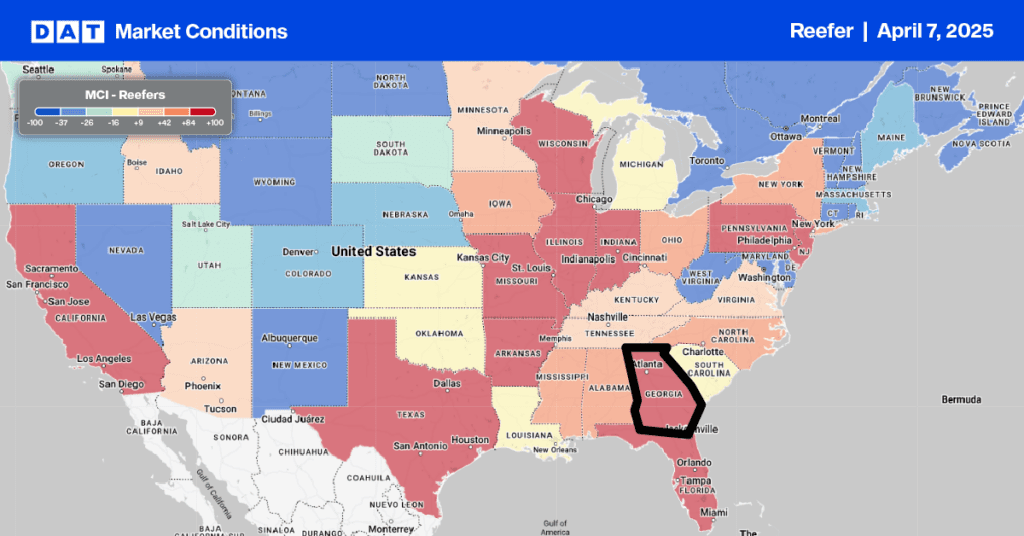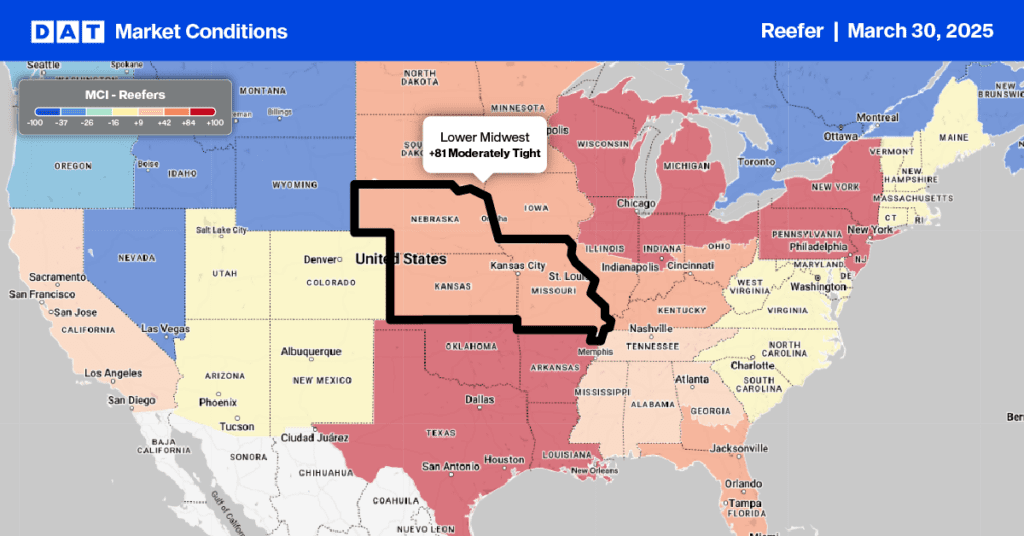If you’re shopping for grapes, blueberries, and cherries this winter, there’s a strong chance they came from Peru or Chile in South America. The number one commodity coming out of that region are grapes, and even though California accounts for 48% of annual grape production in the U.S, 85% of grapes in stores today come from Peru, and 11% are from Chile. The Californian grape season runs from May to the end of December, but U.S. consumers rely heavily on South America for fruits, particularly during the winter months.
DAT Freight & Analytics sees a lot of this import reefer volume in East Coast spot markets arriving by container vessels and breakbulk reefers. The highest volume of refrigerated imports from Peru and Chile in January landed in Philadelphia (72%), followed by Miami (26%) where load post volumes are up 17% and 7% m/m, respectively. In Philadelphia, reefer spot rates increased by $0.20/mile in January to a national average of $3.43/mile excl. FSC this week. Popular destinations are slightly higher at $3.46/mile excl. FSC for loads to Atlanta and at a 12-month high of $6.12/mile excl. FSC for loads to Boston.
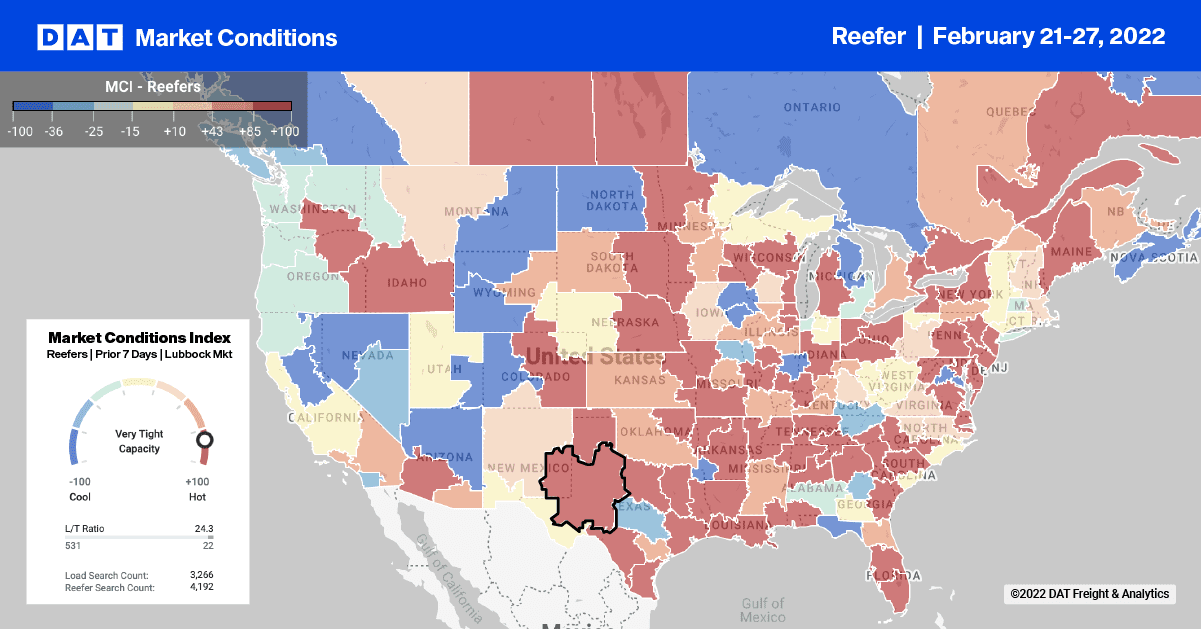
Reefer capacity has been very tight in the upper Midwest for the last few weeks following a much colder February than average. According to weather experts, February will likely end up about 6 degrees colder than normal. January was 5.5 degrees colder than average, making it almost two years since Minnesota had two consecutive colder than normal months. On top of colder temps, the region had snowstorms to deal with last week, slowing down freight networks and tightening capacity. Below-average temperatures are the other factor as dry van shippers increasingly look to reefer equipment to keep traditional dry freight from freezing when ambient temperatures drop.
In the last week, average dry van rates in this region increased by $0.04/mile while reefers increased by double that to just over $4.00/mile ($1.00/mile higher than the national average). The USDA has been reporting a shortage of trucks to haul potatoes out of the Minnesota-North Dakota (Red River Valley) region for a few weeks now. Interestingly, this was the only region out of 21 major produce-growing regions that reported a shortage of trucks last week.
On the West Coast, reefer capacity continues to loosen as outbound rates drop for the fourth week in a row in Los Angeles. Last week the average spot rate was $3.13/mile excl. FSC, a drop of $0.30/mile in the last month. After averaging well north of $6.00/mile excl. FSC for the last four months, reefer rates for loads from Los Angeles to Las Vegas dropped to $4.92/mile excl. FSC last week. That’s just over $1.00/mile higher than this time last year, but still, a definite sign reefer capacity is easing ahead of produce season.
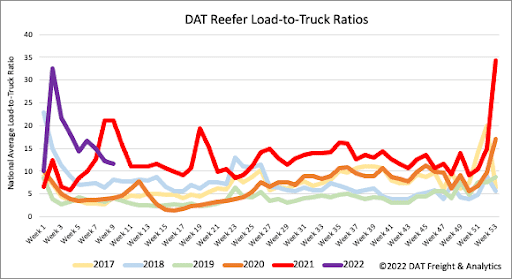
Reefer capacity continues to loosen rapidly following last week’s 4% w/w decrease in load post volumes, which are also down 16% in the previous month. Reefer load post volumes remained 34% higher compared to the same week last year. As capacity eased last week, more carriers posted their equipment in search of loads resulting in the reefer load-to-truck ratio decreasing by 5% w/w from 12.28 to 11.63.
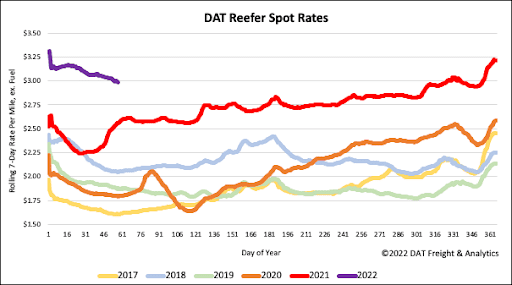
Reefer spot rates have plunged by just under $0.13/mile in the last month following last week’s $0.05/mile drop – that’s a loss of $0.09/mile in the previous two weeks. The reefer national average spot rate ended last week at $2.98/mile excl. FSC, which is the first time reefer average linehaul rates, has been under $3.00/mile since the second week in December the last year. Reefer spot rates are still $0.42/mile higher than the previous period last year and $0.94/mile higher than the same time in 2018.
